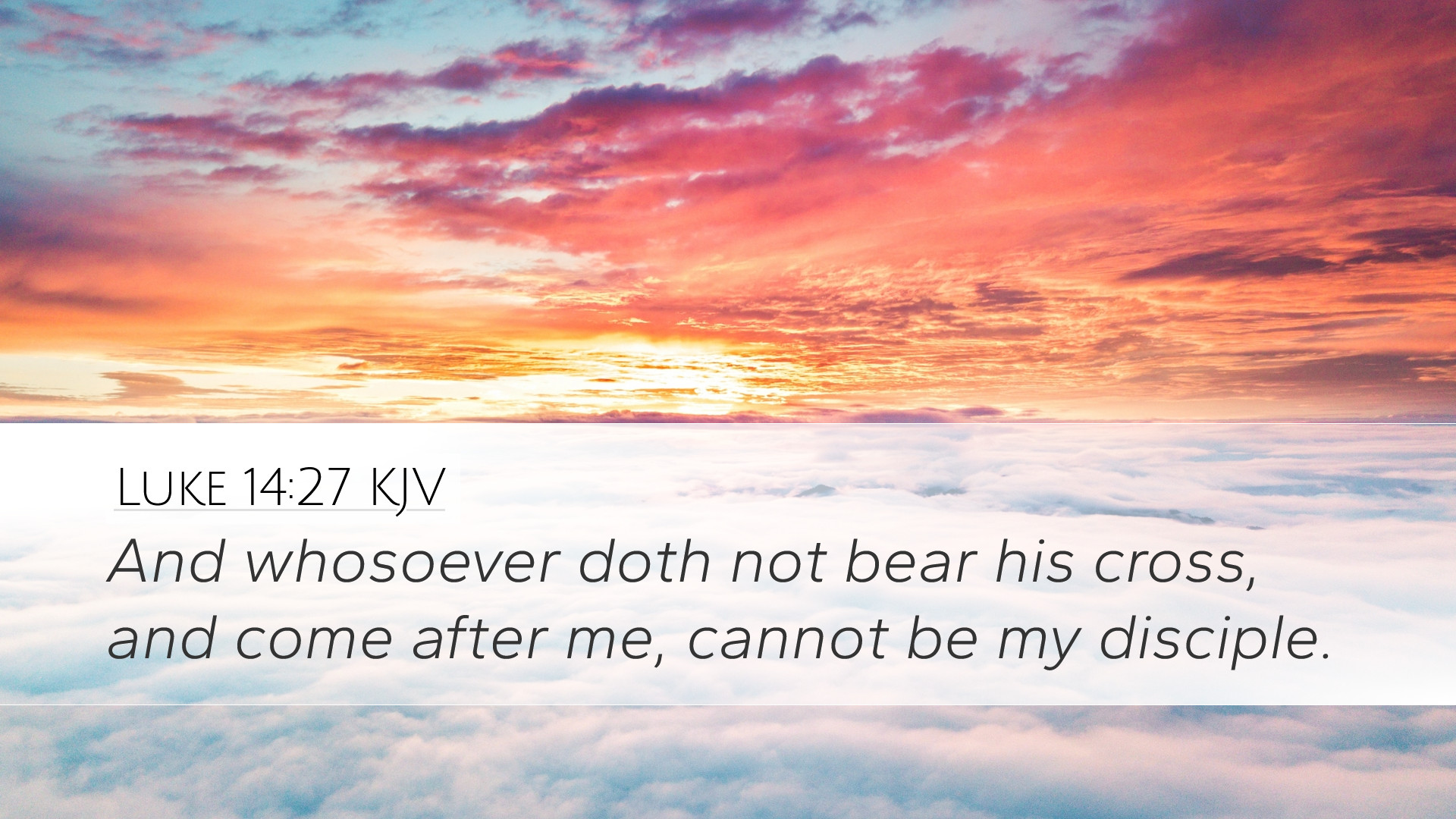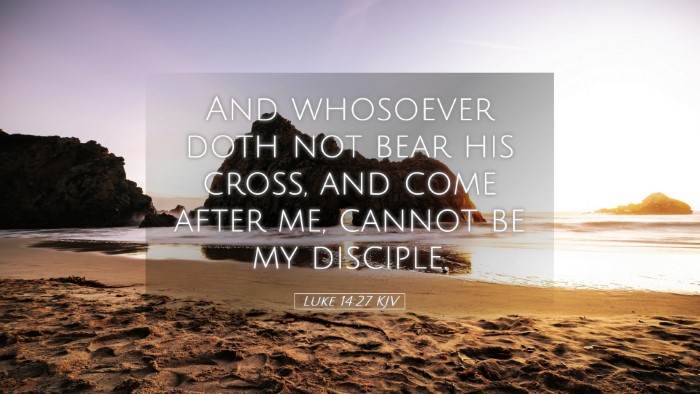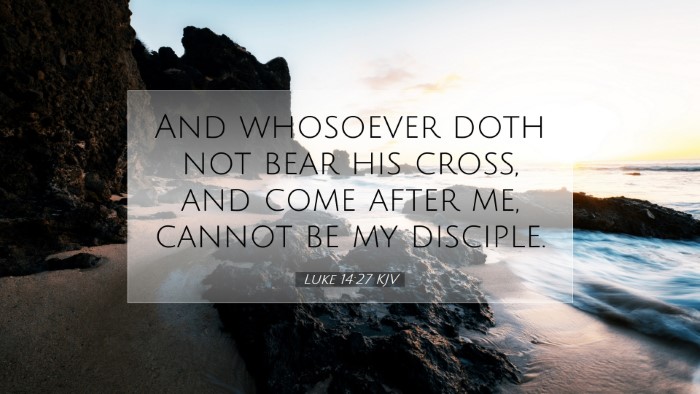Commentary on Luke 14:27
“And whosoever doth not bear his cross, and come after me, cannot be my disciple.”
This verse lies at the heart of Jesus’ teaching on the cost of discipleship. It is a call to self-denial and an unflinching commitment to follow Him. The idea of bearing one’s cross is metaphorical, representing the trials, sufferings, and sacrifices that a follower of Christ must be willing to undertake.
Understanding the Metaphor of the Cross
Matthew Henry eloquently explains that the cross symbolizes not only suffering but also the daily commitment to align one's life with the teachings of Jesus. He stresses that the term 'cross' was familiar to Jesus' audience, as crucifixion was a common form of capital punishment in Rome. To bear one’s cross meant to accept the shame and stigma associated with this form of death.
This imagery serves as a powerful invitation to embrace one's challenges, understanding that true followership requires more than mere acknowledgment of Christ; it necessitates an active participation in His suffering and a personal commitment to the values He embodies.
The Cost of Discipleship
Albert Barnes emphasizes that discipleship comes at a price. In a world filled with competing loyalties and distractions, the call to come after Jesus is profound. It demands that the follower prioritizes Christ above all other loyalties, including those to family, career, and personal aspirations. This radical commitment is not for the faint-hearted. Jesus is clear in stating that without this willingness to carry one’s cross, one cannot genuinely be considered a disciple.
To discuss this further, Barnes highlights that such a commitment may lead to social ostracism, hardship, and even physical suffering. The early Christian community would often experience persecution, making this call to bear the cross all the more significant in their context.
The Essence of Discipleship
Adam Clarke seeks to unpack the relational aspect of this verse. He suggests that the act of following Christ is not merely about enduring suffering but is deeply relational. To ‘come after’ Jesus implies a dynamic of following His example and embracing His mission. It reflects a continual process of growth in faith, whereby the disciple learns, transforms, and contributes to the Kingdom of God.
Clarke asserts that this relationship requires a deep conviction of faith, leading to actions that reflect one’s beliefs. The commitment to discipleship is holistic; it engages the mind, heart, and hands to embody Jesus’ teaching in everyday life.
Application for Today’s Disciples
- Self-Examination: This verse calls for individual reflection on what it means to bear the cross personally. It invites worshippers and leaders alike to assess their level of commitment to Christ and the cost they are willing to pay.
- A Community of Support: In the context of contemporary church life, the call to discipleship can be daunting. Hence, being part of a community that encourages and supports one another in bearing their crosses can be invaluable.
- Teaching and Equipping: Pastors and leaders are charged with the responsibility of teaching about the nature of discipleship. Providing clear teaching on what it means to bear the cross and follow Jesus is crucial for nurturing committed believers.
- Living Out the Gospel: As believers submit to the call of bearing their cross, they must also live out the gospel publicly, showing the world the transformative power of following Jesus, despite the challenges.
- Endurance and Hope: The journey of following Christ is not devoid of suffering, but it carries the promise of hope. Believers are called to endure through trials, trusting in God’s faithful provision and ultimate redemption.
In conclusion, Luke 14:27 presents a formidable challenge to all who would claim the title of ‘disciple.’ The call to bear one’s cross is a summons to radical commitment, encouraging believers to seek a profound relationship with Christ that shapes every aspect of their lives. Drawing from the insights of Matthew Henry, Albert Barnes, and Adam Clarke, it is evident that this teaching is as relevant today as it was in the time of Christ. Each believer is invited to embrace the cross, knowing that in doing so, they embark on a transformative journey that leads to life in abundance.


